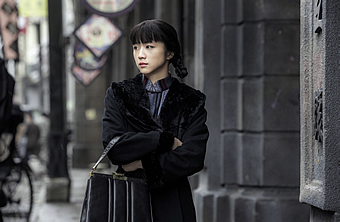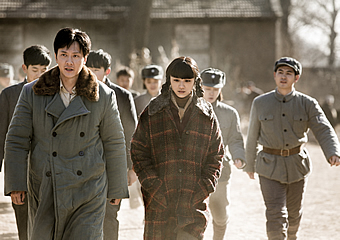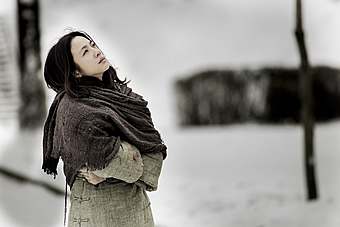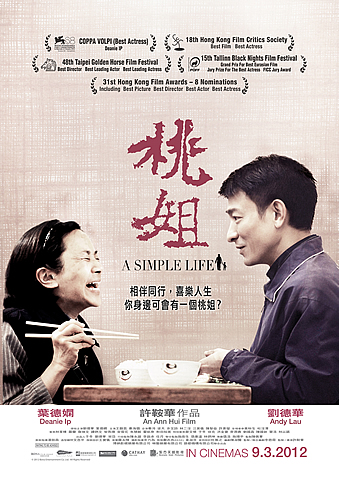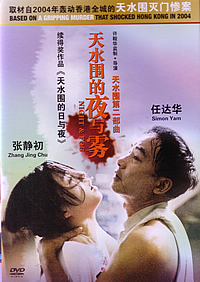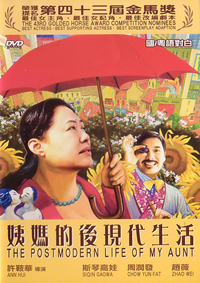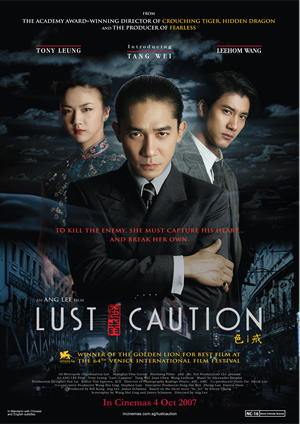THE GOLDEN ERA (黄金时代) (2014)
Genre: Drama
Director: Ann Hui
Cast: Tang Wei, Feng Shao Feng, Zhu Yawen, Wang Zhiwen, Hao Lei, Wang Qianyuan, Huang Xuan, Tian Yuan, Yuan Quan, Zhou Jingwen, Zhang Yi, Sha Yi, Ling Zhenghui, Ding Jiali, Yang Xue, Zu Feng, Feng Lei, Zi Yi
RunTime: 2 hrs 58 mins
Rating: PG13 (Scene of Intimacy)
Released By: Cathay-Keris Films & Clover Films
Official Website:
Opening Day: 16 October 2014
Synopsis: The writer we now know as Xiao Hong was born Zhang Naiying on the day of the 1911 Dragon Boat Festival (June 1st) in Manchuria, north-east China. Her mother died when Xiao Hong was young and her estrangement from her tyrannical father sparked a long quest for an independent and emotionally satisfying life. She was rescued from destitution by hard-drinking fellow writer Xiao Jun, but their fraught and competitive relationship brought her more heartache than joy. She found a kindly and considerate surrogate father in the great writer Lu Xun. While evacuated to safer inland areas to escape the Japanese invasion of China ? and on the rebound from what turned out to be the definitive break with Xiao Jun ? she married another novelist from the North-east, Duanmu Hongliang. They fled together to Hong Kong in 1940. A month after Hong Kong, too, fell to the Japanese on Christmas Day of 1941, Xiao Hong died of tuberculosis at the age of 31. But several key episodes in her life remain obscure and disputed, even now.
Movie Review:
Yes, there was a time when a good writer was celebrated for his works. And here we have a biopic of Chinese writer Xiao Hong (1911-1942) which wants you to realise that a good book is fueled by emotions.
While we in this part of the world won’t be familiar with her works, it is the writer’s unorthodox and turbulent life that makes for good movie material. She died at a young age of 31, and led a rather upsetting life filled with ups and downs. Born in Manchuriain 1911 by the name of Zhang Naiying, Xiao Hong had an unhappy childhood no thanks to paternal abuse. At age 20, she had a short-lived elopement to Peking, followed by her eventual settlement in Harbin, where she begins her writing career with the assistance of newspaper editor and writer Xiao Jun. The two become lovers quickly, before embarking on what most artists would experience - a star crossed, often interrupted affair that brings out the misery and melancholy in almost everyone.
The film tells you right from the outset Xiao Hong’s fate. Played by Tang Wei (Lust, Caution), Xiao Hong directly addresses the audience, stating her name and where she was born and died. This is the beginning of how characters break the fourth wall. The rest of the film sees supporting characters (Xiao Hong’s family members and friends) talking to the camera, recounting memories involving the essayist which subsequently play out in short scenes.
Director Ann Hui’s latest work is an ambitious one. Xiao Hong’s story takes place in many locations (northeastern China, Japan, Wuhan, Chongqing, Hong Kong, just to name a few), and happens during a time of unrest. Then there is the writer’s chaotic love life which involved two pregnancies. This is on top of her struggle to be a writer during a period when female novelists are overshadowed by the careers of more established male writers in her literary circle. Xiao Hong’s works “The Field of Life and Death” and “Tales of the HulanRiver” have only come to people’s attention recently.
The award winning filmmaker’s past works (2008’s The Way We Are, 2011’s A Simple Life) are more intimate and easily relatable, but this sprawling 179 minute film may contain too many complications that test the audience’s patience. Some portions seem emotionally distanced and viewers may find it difficult to empathise with the protagonist’s plights.
Tang, who has scored a Best Actress nomination at the 51st Golden Horse Awards (the high budget production is also nominated in the Feature, Director, Supporting Actress and Original Screenplay categories), does a decent job here. Her role as Xiao Hong is a demanding one, requiring the 35 year old actress to portray different fleeting emotions. While the three hour runtime doesn’t help us to focus, Tang’s performance in Xiao Hong’s final days are emotionally engaging, packing a heartrending punch.
Feng Shao Feng (Young Detective Dee: Rise of the Sea Dragon) should attract some fan girls with his portrayal of Xiao Jun, and the supporting cast of Wang Zhiwen as the dignified writer Lu Xun, Hao Lei as the gusty rebel leader Ding Ling and Zhang Jiayi as the leftist Hong Kong publisher Zhou Jingwen deliver short but commendable on screen performances.
Production values are top notch, as Hui’s direction brings the film to different locales. The cinematography is exquisite, the art direction is beautiful and the music score is contemplative. What can be improved though, seems to be the undisciplined editing.
The film’s title refers to a more introspective sense of time and opportunity, and it is films like this which trigger your senses to ponder what life might have turned out if you bravely pursued your ideals.
Movie Rating:




(The three hour ambitious biopic may not be perfect, but is still a well produced film that sets you thinking what artists go through to produce a piece of work)
Review by John Li
You might also like:
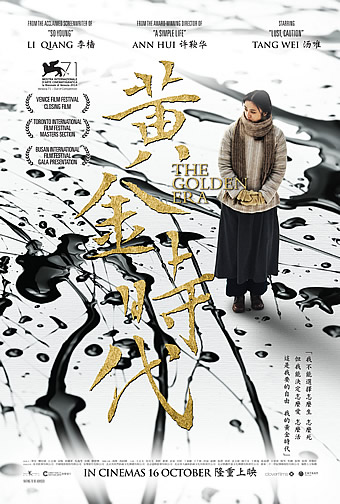
Movie Stills



